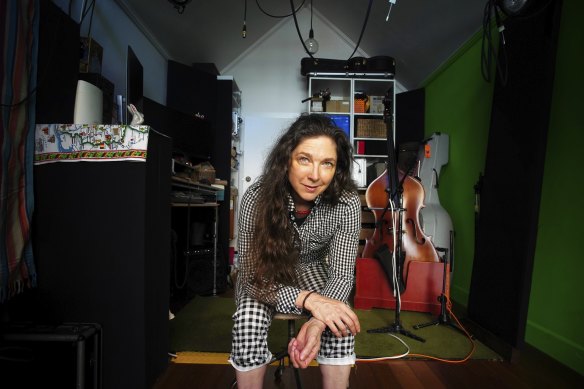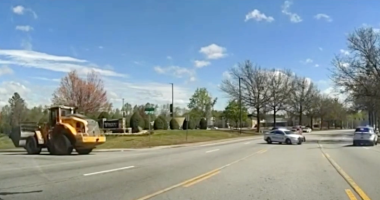“In any one week, I could fill out nine different time sheets plus all the invoicing I do, and it’s an administrative nightmare.
“Sometimes I feel as though I’m just killing myself going from gig to gig, event to event, but then you have a good performance and a good education moment then you think, ‘yes, that’s why I’m doing it,’ and you have enough of those moments to string you along. When those moments are no longer powerful, I’ll throw in the towel.”
The MEAA says experiences like Siegers’ are poor compensation for a creative life spent on the road getting to gigs, composing and recording while maintaining instruments, voice and profile.
“Musicians are the face of the insecure work crisis,” MEAA campaign director Paul Davies said. “While musicians need an industry that can pay them and keep them safe and able to develop their careers, we also need reforms to fix live music generally.”

Double bassist Kimberley Wheeler says earning an income from music has got a “hell of a lot harder”.Credit: Luis Enrique Ascui
The MEAA survey found 40 per cent of musicians were working two or more music jobs and 42 per cent reported performing unpaid gigs. Sentiment had turned decidedly negative amid the cost-of-living crisis, with 56 per cent of musicians thinking they were not paid enough – 20 per cent more than the previous year.
Loading
The survey will underpin industry negotiations for the roll-out of a $250 per artist per gig minimum to all commercial venues, and all states, bar Tasmania, have signed up to the minimum fee for taxpayer-subsidised events.
The campaign has been ramped up after last week’s shock cancellation of Australia’s largest festival, Splendour in the Grass, which has rocked the industry and music lovers and prompted a federal parliamentary inquiry.
“The ongoing failure of good music venues and festivals, such as Splendour, adds urgency to the discussions MEAA and Musicians Australia have initiated with peak industry organisations to find solutions. Music is a public good,” Davies said.
Meanwhile, North Melbourne vocalist and double bassist Kimberley Wheeler said the financial lot of musicians like herself had “gotten a hell of a lot harder since the pandemic – and it was hard before then”.
“There was a heyday in the early 2000s when we were able to make and sell our own CDs, but overall income streams are drying up left, right and centre, especially if you are an unsigned band.
Even before Splendour’s shock cancellation, the festival circuit was already performing poorly, she said. “In 2022, I had more gigs cancelled than went ahead, and at the point, I cancelled the rest of the year, and I thought I’d hold back because I couldn’t sustain that direct financial hit,” Wheeler said.
Wheeler, a member of the MEAA’s representative board, is working three different jobs, two of them outside of music.
“At the moment, I’m taking on more other work than doing music, and I see a lot of other people doing the same thing,” she said. “I feel like this is the breaking point for our industry so, yes, I’m feeling gloomy at where the music industry is headed at the moment.”
Find out the next TV, streaming series and movies to add to your must-sees. Get The Watchlist delivered every Thursday.
Read More: World News | Entertainment News | Celeb News
SMH









